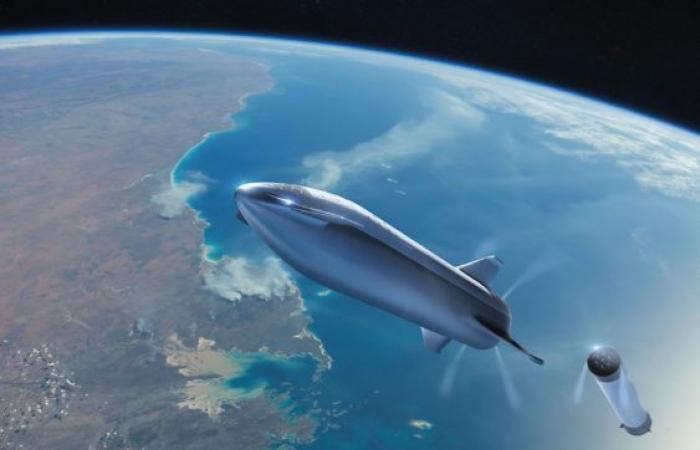The year 2024 was eventful for the aerospace industry: the pace of launches from Cape Canaveral broke all records; in Texas, SpaceX successfully recovered and landed its Starship Super Heavy rocket launcher; the private company Polaris Dawn allowed amateur astronauts to wander into space; but also, a Starliner crew got stuck in space. What does 2025 have in store for us?
An ever more sustained rate of launches
As journalist Brooke Edwards of Florida Today points out, there were 73 launches in 2023; there are already more than 90 as of December 27, 2024; and no one doubts that this figure will be beaten in 2025 with even more launches! Indeed, SpaceX launches its Falcon-9 rockets on Starlink regularly and delivers more and more private satellites.
At the same time, NASA and the Federal Department of Defense are also carrying out their own launch activities.
And in November 2024, Blue Origin announced that its massive new New Glenn rocket, currently under testing, will be built in Florida and launched from Cape Canaveral. It’s only a matter of days before this metal monster soars into the Florida skies.
A new director at the head of NASA
If confirmed, Jared Isaacman, appointed by President Donald Trump, will replace Bill Nelson. With a professional background in finance and private space exploration, he will surely bring a wind of change to the American aerospace institution, and perhaps to the Artemis mission which is currently working to return to the Moon by 2027, with a human crew including Canadian astronauts.
New launch infrastructures under construction
SpaceX plans to build three new landing zones for its rockets on the Florida Space Coast. This will allow it to further accelerate the pace of launches. In 2025, the results of studies related to the environmental impact and the quality of life of local residents will be published and the FAA (Federal Aviation Administration) will deliver its verdict for a potential green light for these gargantuan projects.
Meanwhile, construction on the $1.8 billion Hinton project will begin on the Space Coast in January 2025. The company behind the project wishes to remain confidential. The new infrastructure will allow the launch of gigantic Starship Super Heavy rockets. Starship is also under contract with NASA for the Artemis mission to the Moon.
The ambition of Blue Origin and Jeff Bezos
If all goes well for the launch of New Glenn, Blue Origin will be able to set out to conquer space and compete with Elon Musk’s SpaceX. It is a real constellation, nicknamed Kuiper, that the company plans to put into orbit with no fewer than 3,232 satellites. It is also NASA’s subcontracting partner for its ESPACADE mission to Mars, scheduled for launch in spring 2025 to study the magnetosphere of the Red Planet.
The IM-2 Lunar Trailblazer and Blue Ghost missions
In 2025, IM-2 will land near the South Pole of the Moon, near the future landing point of the human Artemis mission, where scientists believe that the presence of water in the form of ice is highly possible.
Firefly Aerospace will also send its Blue Ghost mission to the Moon, which aims to carry out numerous studies for NASA such as the electric and magnetic fields of our favorite satellite, the heat fluxes from the center of the Moon, or even the capacities navigation systems.
Le « Space adventurism »
In 2025, space tourism has a bright future ahead of it. The Axiom Space company will continue its private missions using SpaceX rockets.
Axiom Space also plans to build a new space station which will be attached to the International Space Station (ISS) and which will later be used by NASA, which must leave the aging ISS before 2030.
Likewise, its competitor Vast Space is building space stations, including Haven-2, a large space structure which should be ready in 2028 and which will also be connected to the ISS. On their website, we can see the scale of their ambition: “Vast is developing humanity’s most capable space stations, pioneering the next giant leap towards long-term life and flourishing in space. »
SpaceX conquers the poles
Finally, in spring 2025, SpaceX will launch its FRAM2 mission which will send four amateur astronauts into a new orbit: for three to five days, the mission will orbit from the North Pole to the South Pole of our blue planet. These will be incredible sensations in perspective and a literally polar adventure for these new space adventurers.






